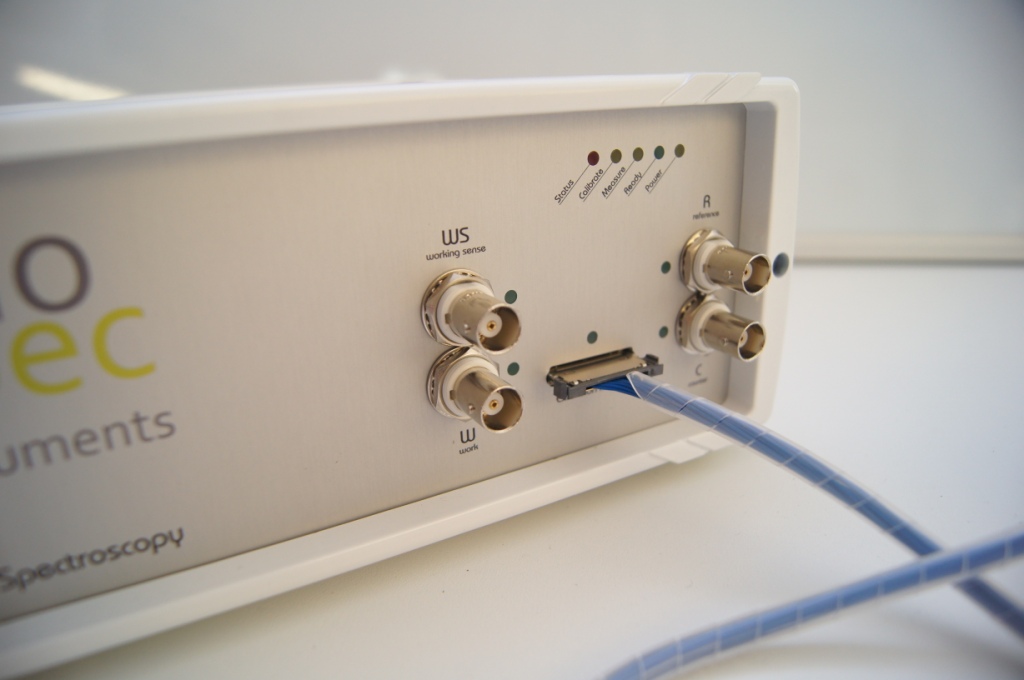Sciospec is a leader in the design and development of cutting-edge solutions that utilize electrochemical techniques and analytic ones, including impedance tomography and the spectrum of electrical impedance. The techniques are employed across a variety of fields, including bio-analytics as well as biosensors. They also have applications in materials science, process control, as well as bio-analytics. The experience of Sciospec’s experts in these fields has made it a leader in implementing solutions that meet the demands of various industries, ranging from micro-scale biochip solutions, to massive-multichannel systems that fully automate industrial process control.

Electrical impedance spectrum (EIS), a technique which measures the electrical properties of a material is one of Sciospec’s most important applications in bio-analytics. EIS analyzes the electrical properties of substances, which are then used to identify their chemical and physical attributes. EIS can be used in bioanalytics to determine the electrical properties of from biological materials. EIS can be utilized to determine the biological process or diseases.
Sciospec biochip solutions are compatible when used in conjunction with EIS. They are extensively used in the development of biosensors. Biosensors allow for the detection and measurement of the biomolecules present in a sample like saliva or blood. These sensors are used in many applications, such as diagnostics for medical conditions and environmental monitoring.
Sciospec’s biochip products can be expanded to meet a range of requirements. From small-scale biochips to multichannel biochip readers, Sciospec’s solutions are specifically designed to meet the demands of a variety industries. The Sciospec biochips are used for example to build biosensors for the medical diagnostics industry that detect diseases like cancer, HIV and COVID-19.
Sciospec’s solutions are widely used in the material sciences research. The electrical properties of materials can be studied using impedance spectroscopy. This enables us to better understand their physical and chemical characteristics. Sciospec’s solutions can be applied to create new materials with certain properties, for instance conductivity. They are then used in various applications, such as electronics and storage of energy.
Sciospec’s solutions can also be utilized for process control. Electric impedance spectroscopy is used to monitor the characteristics of a material in real-time, which is very useful in industrial process control. Sciospec could, for example utilize its tools to check the quality and specifications of a product in production.
Sciospec’s multichannel massive solutions are developed for use in industrial settings with completely automated process control where high throughput testing is needed. These solutions allow for the quick testing of hundreds, or even thousands of samples.
Sciospec’s solutions can also be used for high-content screening in the purpose of pharmacological testing. High-content screening is a method that is used to test a large number of substances simultaneously for their biological activity. Sciospec solutions can be used to determine electrical properties of cells. This is used to determine cell activity.
Sciospec’s solutions stand out because of the scalability DNA. Sciospec’s solutions are flexible. That means they can easily be adapted to suit different industries or applications. This is accomplished through the use of modular components that are easily configured to meet specific requirements.
In the medical diagnostics sector, for example, Sciospec can configure its biochips to work with various types of biosensors depending on the condition or disease being tested. In the industry of material science Sciospec’s products can be set up to work with a variety of kinds of materials based on their properties as well as the intended use.
Sciospec’s High Content Screening (HCS) is revolutionizing the area of testing pharmacological properties. It permits simultaneous analysis of multiple parameters, which allows researchers to collect comprehensive and meaningful data about potential drug targets. Contrary to traditional screening methods HCS incorporates information like cell morphology or proliferative. In turn, this can lead to more accurate predictions of the effectiveness of a drug or its toxicity. With its advanced automation capabilities and high-throughput processing, HCS can significantly reduce the time and expenses associated with drug discovery, making it a game-changer in the pharmaceutical industry.
The most important thing to remember is that Sciospec’s electrochemical techniques offer a unique, powerful method to improve biosensors. Sciospec’s electrochemical techniques allow them, using the use of a mixture of materials and design concepts, to create highly sensitive and specific sensors that provide precise results without interfering. This means that their technology may revolutionize the application of biosensors by being able to detect the smallest changes in biochemistry in real-time. Additionally, because the technology permits mobile devices, this offers greater accessibility and convenience in the field. Overall, Sciospec’s approach provides huge opportunities in clinical diagnostics, drug discovery and other research and development areas. Clearly, this innovative innovation is full of potential and will propel biotechnological breakthroughs over the next few years.
For more information, click electrical impedance
